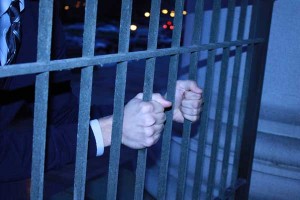WA wins felon voter case in 9th Circuit
The 9th Circuit Court of Appeals has given the green light for Washington to continue its longstanding ban on felon voting.
The court unanimously agreed with Secretary of State Sam Reed and Attorney General Rob McKenna, who had argued just two weeks ago that the 11-judge panel in San Francisco should uphold the felon disenchisement law that has been adopted by nearly every state in America.
A three-judge panel of the court, in a surprise decision that drew widespread criticism, ruled 2-1 in January that the disenfra nchisement of felons is unconstitutional and violates the Federal Voting Rights Act of 1965. The court itself then took the unusual step of vacating that ruling and granting a quick rehearing.
nchisement of felons is unconstitutional and violates the Federal Voting Rights Act of 1965. The court itself then took the unusual step of vacating that ruling and granting a quick rehearing.
In a brief opinion handed down Thursday, the court said Washington has had its policy since 1866 and that every state in the Western circuit has the same practice, which is specifically authorized in the state and federal constitutions. The inmates who challenged the law did not claim that the law was adopted with discriminatory intent, nor show evidence that their own conviction was based on intentional racism in the criminal justice system, the court said.
The court held that plaintiffs challenging felon disenfranchisement would have to show that the criminal justice system is “infected by intentional discrimination or that the felon disenfranchisement law was enacted with such iintent.”
Some of the judges agreed to dismiss the challenge, but used different reasoning than the majority. No outright dissents were written.
Secretary of State Sam Reed said he was delighted with the speedy and decisive victory in the 9th Circuit:
“We absolutely believe in civil rights and will continue to work toward equality in the criminal justice system and in our broader society, but at the same time, we firmly believe that it is appropriate and reasonable to deny voting rights to people who commit serious crimes.
“This has been the law in our state since 1866 and nearly every state in America has this sensible policy. There is clearly no discriminatory intent. It is about a reasonable sanction we impose based on the person’s decision to commit a crime.
“The people of Washington will be very pleased with this ruling. We will inform county election officials across the state that they will continue to deny registration and voting of felons who are behind bars or still on community supervision. We thank Attorney General McKenna for his vigorous, personal handling of this case.
“We are very pleased to have apparently final resolution of a case that has dragged through the courts for 14 years now. Since this circuit now agrees with other circuits around the country, there would seem to be no reason for the U.S. Supreme Court to accept review. We trust that this case is over.”
McKenna said:
“This ruling affirms the rights of states to withhold the right to vote from those who’ve committed the most serious crimes against society,” McKenna said. “I’m pleased by how quickly the court issued its unanimous decision. This ruling brings the Ninth Circuit into line with the three other federal circuit courts of appeals who concluded that felon disenfranchisement laws are generally exempt from challenges under the federal Voting Rights Act. It affirms the rights of the 47 other states with similar laws.”
State Elections Director Nick Handy, who quickly notified county election departments of the decision, said 47,000 felons in prison or on community supervision could have registered to vote if the decision had gone the other way. He said he was pleased that the long-simmering case has finally been resolved. Ex-cons who have been released from community supervision will be eligible to vote, under terms of 2009 legislation supported by Reed.
Background: The case was originally brought 14 years ago in U.S. District Court in Eastern Washington by Muhammad Shabazz Farrakhan and three other black inmates, and by a Native American and a Latino inmate. The inmates said minorities are disproportionately prosecuted and sentenced to prison, and that their automatic disenfranchisement violates the federal Voting Rights Act.
The Appeals bench, now overturned, concurred with the inmates that the state’s criminal justice system is “infected” with racial discrimination and that the challengers don’t have to prove that that it is intentional or racially motivated discrimination. The challengers didn’t assert that the felon disenfranchisement law was enacted with intent to discriminate, but said that when the law is applied in the context of the criminal justice system, it is more likely for minorities to lose their voting rights. That’s illegal, they contended.
The court held that the Voting Rights Act, adopted by Congress in 1965 for the purpose of eliminating racial discrimination in voting, does not permit disenfranchising voters who are behind bars when the criminal justice system is skewed toward greater incarceration of minorities.
Three other circuits, the First, Second and Eleventh, have reached the opposite conclusion about felon voting. The decision in the First, out of Massachusetts, was in 2009; the 2nd Circuit decision, in a New York case, was in 2006; and the 11th Circuit, out of Florida, was in 2005.
For a full explanation of when felons regain the right to vote, visit the Secretary of State’s Web site.
Copies of the court documents in this case are also available on the Secretary of State’s Web site.